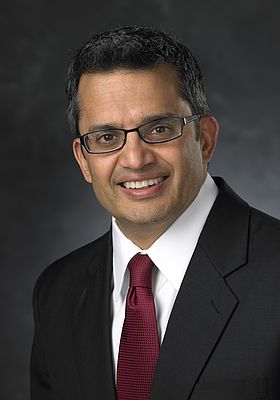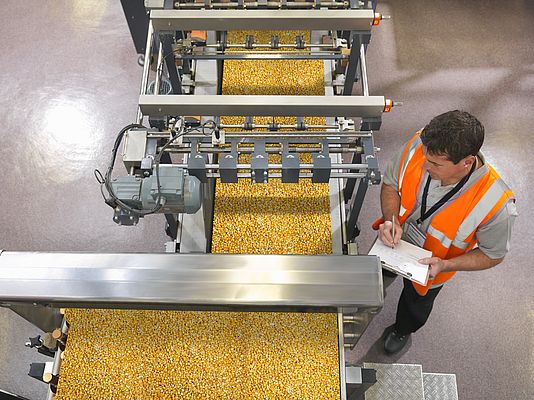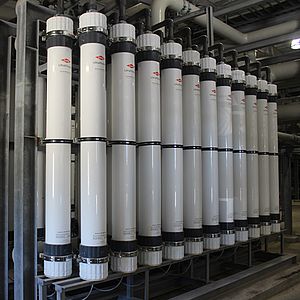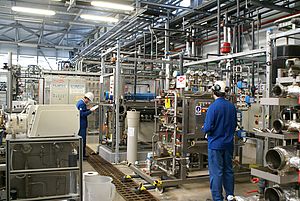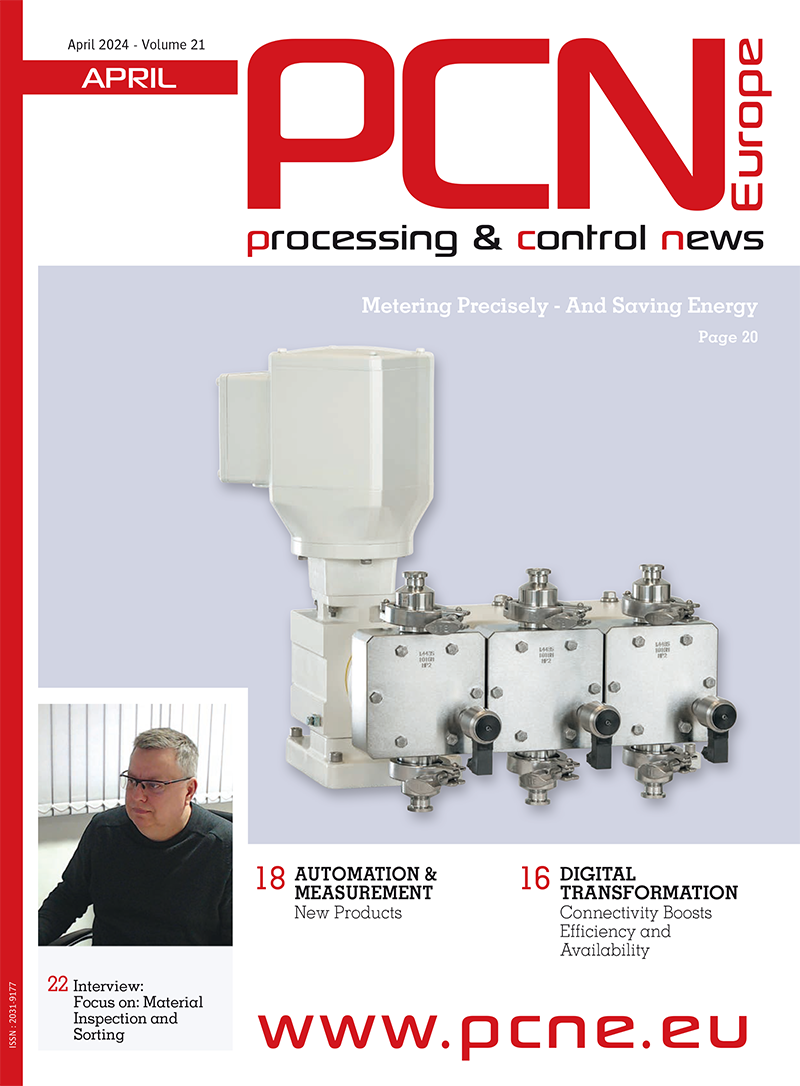PCN Europe: Dow Water & Process Solutions recently launched the campaign "Water Means Business". What is the core message of this campaign and what does this statement concretely imply?
Mr. Desai: At the heart of the campaign is the observation that companies are being squeezed on both ends in terms of the role of water in their business. More and more companies are realizing that smart water technology can help them increase their economic profits and become more sustainable at the same time. In fact, between, 2011 and 2014, companies spent over $84 billion worldwide to improve water management efficiency and some rating agencies like Standard & Poor's are already counting water risk as one of their variables for setting a company's rating. Despite the huge market, the belief persists that investing in advanced water treatment technologies is too costly. What businesses need to understand is the impact of both the cost of water and the cost of interrupted water supply to business operations and growth. We are committed to saving water but also to using it more efficiently, which translates into less strain on the planet while improving companies' bottom lines. Businesses that have already introduced strategies to improve water efficiency are reporting up to 40% of reduced costs.
PCN Europe: Water means food, energy, health; in few words it means life. What is the best water management practice to apply for the future in Dow Water & Process Solutions' vision?
Mr. Desai: You are right. Statistics from the United Nations predict that by 2030, our world will need at least 30% more water, 45% more energy, and 50% more food to keep up with rising populations, affluence and demand. Global manufacturing's demand for water alone is anticipated to increase by 400% from 2000 to 2050. Water sits at the intersection of necessity and scarcity - since we do not have a replacement for water, we need to focus on the scarcity side of the picture. What we have seen is that the adoption of technologies for water reuse, essentially recycling water, is growing the fastest among corporate clients, while technologies that increase efficiency and reduce water used in operations are in demand, as well.
PCN Europe: Why did Dow Water & Process Solutions decide to push ahead on the track of sustainability and waste water management?
Mr. Desai: Sustainability is not a separate pillar of business strategy - it is the business plan. Our technologies are helping companies around the globe become more resource, energy and cost efficient - this is one of our key priorities. It is not only important for addressing water risks, but also for the long-term viability of any company. Consider an operation like Dow Terneuzen: it operates one of the largest chemical processing plants outside the U.S. It is located in an area where freshwater is scarce. However, because of a wastewater recycling program it has with the water board and water company, it takes in 10,000 cubic meters of municipal household wastewater each day and uses every liter of water three times instead of once.
PCN Europe: The Food & Beverage industry will be probably one of the first sectors to pay the consequences of water scarcity. Are there any alternatives to avoid or face at best this issue?
Mr. Desai: The challenges here really bring the question of water scarcity home for many people. Food & Beverage is one of the most water demanding sectors. Take a simple, everyday luxury like a nice pizza dinner with a glass of beer. Over 1,200 liters of water are needed to produce a margherita pizza and 150 liters are needed for a pint of beer. No one wants to compromise the taste of their favorite foods and drinks or their freedom to enjoy them. But as opposed to something like the semiconductor industry, the Food & Beverage industry does not need ultrapure water for their manufacturing processes. The Food & Beverage industry can install smart water treatment technology onsite to recycle water for indirect use in other parts of their operations. We have solutions that are affordable, low-maintenance and hassle-free. This is a must for the Food & Beverage Industry because they have an ongoing responsibility to show compliance with changing regulations and requirements. Water is required for energy, energy is required for water, and both are required for food. Action in one area can directly impact the other, so it is vital to manage this water-energy-food nexus. This industry is in a good position to benefit from advancements in water treatment technology.
PCN Europe: Which innovative solutions does Dow Water & Process Solutions offer for the Food & Beverage industry?
Mr. Desai: Dow Water & Process Solutions has the broadest and deepest portfolio of water and process solutions from high solids filtration, ultrafiltration to reverse osmosis, nanofiltration and ion exchange resins. From that standpoint, we can offer solutions for almost all the needs of the industry. The food industry creates huge amounts of wastewater with high-solids. These high concentrations of total suspended solids (TSS) that can plug up filters and need to be filtered, often to meet high-solids water limits from the local municipal wastewater treatment facility. TEQUATIC™ PLUS Filters from Dow have been used successfully by our customers to remove extremely high and variable solids from water. They are self-cleaning and unlike other filters, they can handle feedwater containing very high total suspended solids so there's more uptime for our customers and their customers. They also combine several different processes into one device - cross-flow filtration, forced settling and solids collection. That gives the customer consistent performance with a smaller footprint. Specific to Europe, demand for high fructose corn syrup (HFCS) output is expected to more than triple after 2017 when the EU removes production quotas as part of its CAP reform agreement. DOWEX MONOSPHERE™ 88 (cation) and 77 (anion) are ion exchange resins that help the HFCS plants deash (remove minerals), while DOWEX MONOSPHERE™ 99Ca/310 is a chromatographic resin that separates fructose from glucose, and is also used to concentrates fructose to 55%, which is what is used in soft drinks. These resins have the potential to make the manufacturing process more cost and energy efficient while increasing yield and throughput. The dairy processing industry in particular has seen how reverse osmosis (RO) systems can help them save energy and improve quality. In dairy processing, there's a fluid called bypass flow that is necessary for sanitation but too much of it can reduce the efficiency of the RO element and put more demand on the energy pumps. We developed a specially designed polypropylene outer shell for our RO membranes that minimizes this wasted bypass fluid and so reduces the energy requirements. For one US dairy producer, energy savings from our DOW HYPERSHELL™ RO elements were able to provide them with a 29%-45% cost savings over competitive elements. That added up to a savings of $438 per element.
Sara Ibrahim
Editor of PCN Europe


